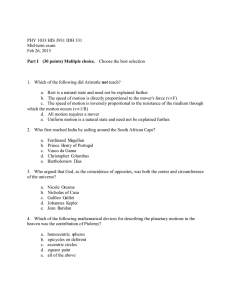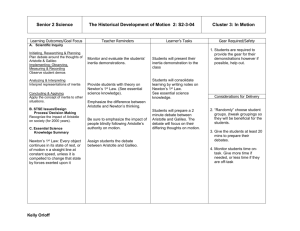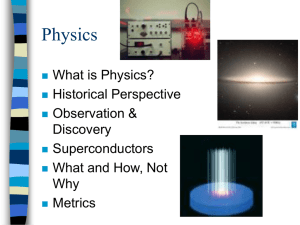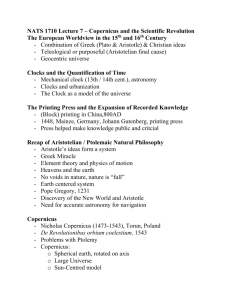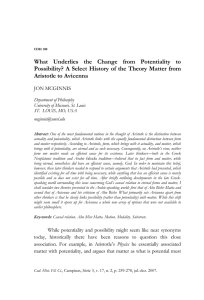Totally complete answers would have dealt with the following (though... earn an A):
advertisement
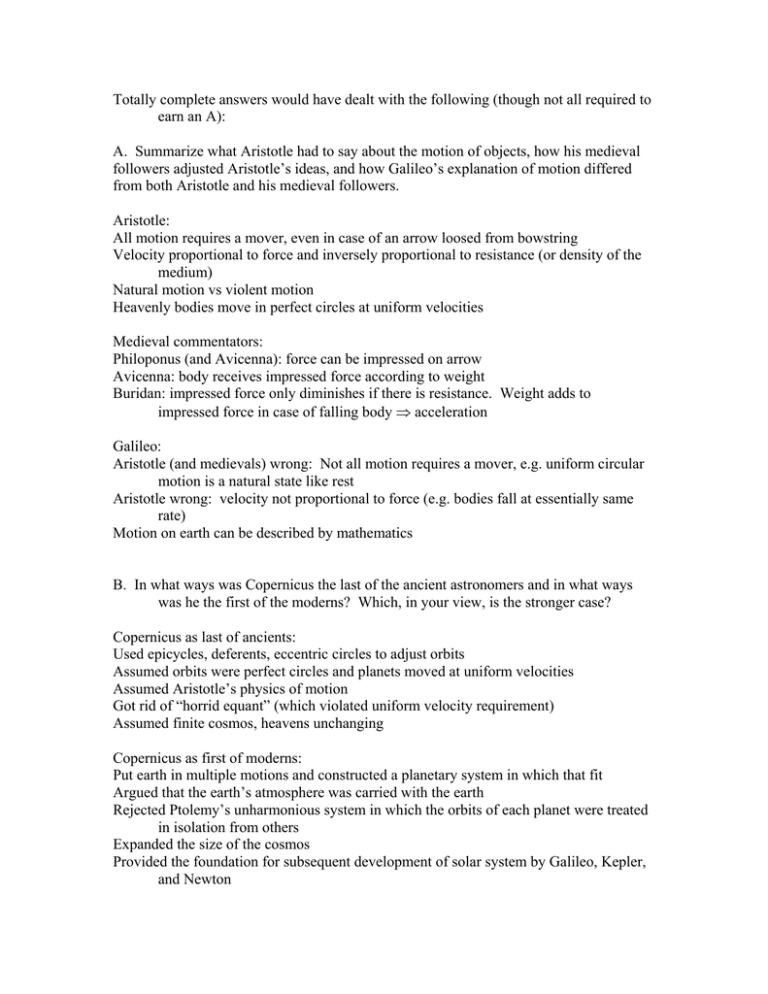
Totally complete answers would have dealt with the following (though not all required to earn an A): A. Summarize what Aristotle had to say about the motion of objects, how his medieval followers adjusted Aristotle’s ideas, and how Galileo’s explanation of motion differed from both Aristotle and his medieval followers. Aristotle: All motion requires a mover, even in case of an arrow loosed from bowstring Velocity proportional to force and inversely proportional to resistance (or density of the medium) Natural motion vs violent motion Heavenly bodies move in perfect circles at uniform velocities Medieval commentators: Philoponus (and Avicenna): force can be impressed on arrow Avicenna: body receives impressed force according to weight Buridan: impressed force only diminishes if there is resistance. Weight adds to impressed force in case of falling body acceleration Galileo: Aristotle (and medievals) wrong: Not all motion requires a mover, e.g. uniform circular motion is a natural state like rest Aristotle wrong: velocity not proportional to force (e.g. bodies fall at essentially same rate) Motion on earth can be described by mathematics B. In what ways was Copernicus the last of the ancient astronomers and in what ways was he the first of the moderns? Which, in your view, is the stronger case? Copernicus as last of ancients: Used epicycles, deferents, eccentric circles to adjust orbits Assumed orbits were perfect circles and planets moved at uniform velocities Assumed Aristotle’s physics of motion Got rid of “horrid equant” (which violated uniform velocity requirement) Assumed finite cosmos, heavens unchanging Copernicus as first of moderns: Put earth in multiple motions and constructed a planetary system in which that fit Argued that the earth’s atmosphere was carried with the earth Rejected Ptolemy’s unharmonious system in which the orbits of each planet were treated in isolation from others Expanded the size of the cosmos Provided the foundation for subsequent development of solar system by Galileo, Kepler, and Newton
